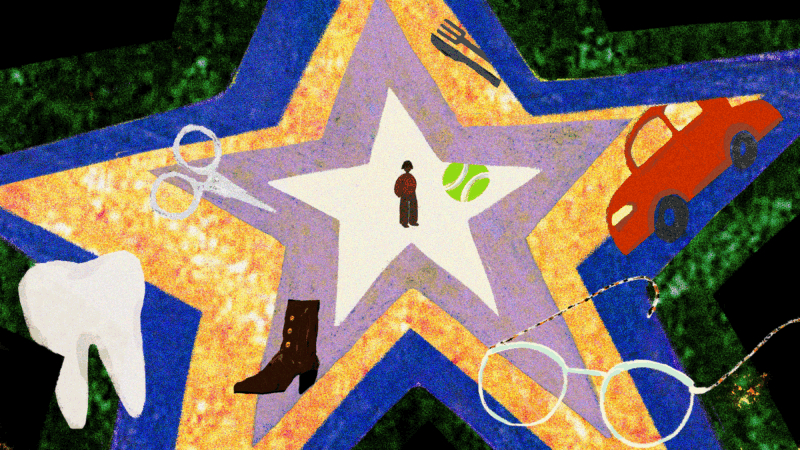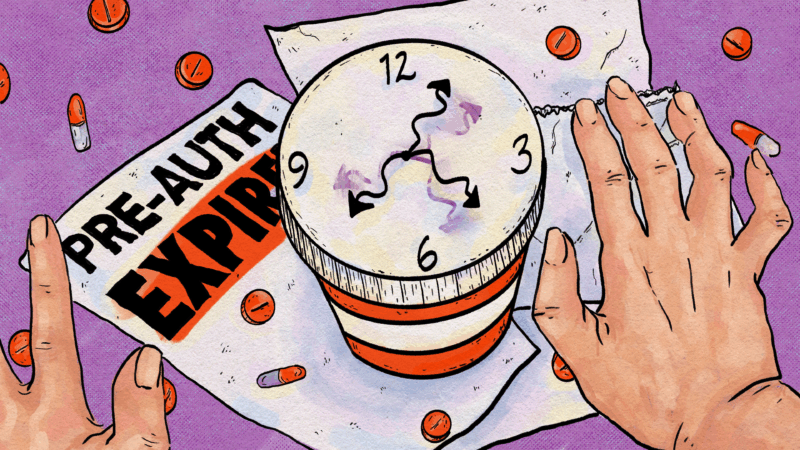Fee or Flee
No sneakers here, lots of loafers and wingtips. Lawyers, corporate leaders and business people showing off their step. Jimmy Callis at Bon Ton Hatters and Shoe Repair is happy to oblige.
The store’s been here 100 years, 25 with Callis at the helm. And an increase in the cost of doing business in Birmingham is cutting into an already dwindling profit margin.
“So far, it’s doubled the price of being open. And that’s all. (Do you charge more because of it?) No.”
Callis’s business license fee went up this year, from $111.00 to $222.00, as part of Mayor Larry Langford’s economic stimulus plan to bring more revenue into the city. Sales tax rates also went up by one percent.
Callis says the increases won’t break the bank, but it does make things tighter.
“I just … less for playtime. More for … you know … more deeper into your pocket to do what you gotta do. (Would you ever think about leaving or closing shop because of it?) Nah.”
For his part, Mayor Langford says in order for the city to prosper and provide the services expected of it, it has to have the money.
“You can’t it both ways. You can’t have street paving, lights that you want, increased police protection. Somebody has to pay for it and we all have to share in it.”
It’s a defense the mayor’s used since implementing the plan at the first of the year. He says the increase in fees shouldn’t be enough to drive businesses out of the city.
“Some licenses went from 30 dollars to 60 dollars. If that’s going to put you out of business, you were going out of business anyway.”
That sentiment doesn’t wash with Nathan Porter. The owner of Roma Italian Bistro on 20th Street says it’s not just a matter of money he has to shell out. He says it’s about supporting local small businesses.
“Every time they raise a fee, every time they make it more difficult for you to do business here than to do it in Gardendale, or Trussville, or Homewood, or anywhere else, then you’re driving people like us out of the city center, out of necessity, not because we want to leave. I would much rather drive into the city center and work everyday of my life, than to spend one ounce of my life in the suburbs. But realistically, I’m looking everyday, ‘how do I get out?’ (or) ‘must I get out?'”
But fellow restaurateur Frank Stitt says he’s been seeing some positive results in the last month or two… a response, he thinks, that’s attributed to new leadership at city hall and a stronger emphasis on services.
“We immediately had the city out here trimming trees so that there’s better light. We had other parts of the city out here replacing light bulbs. They’re replacing some of the problems in the sidewalks.”
The increased license fee, he says, is a trade-off. More lighting makes his customers feel safe; better sidewalks improve the infrastructure and help the overall appearance. Yes, it’s more money, but the return is tangible and he’s helping fund part of the solution.
“And so I felt as though, it’s kind of my duty as a citizen — a part of Birmingham — to contribute a little bit more.”
Not everyone feels that way. A trip down 20th Street to Jimmy Callis’s shoe repair shop finds a skeptical business owner. One who, after paying his doubled license fee, waits for results and solutions.
“Uh…has not done anything so far as increased security or making it safer for the people to walk the streets. Or more pleasant. So, nah. I don’t think it’s changed much of anything … yet.”
The word ‘yet’ is the caveat. A powerful expression of being hopeful and wary all at same time.
Callis lives upstairs from his shop, with his new puppy Lucy in tow. He watches stores come and go in the neighborhood and wonders if there really can be a rebound downtown. Maybe with all the new lofts and condos, he thinks.
But what about the added costs of doing business in Birmingham? For Callis, it hasn’t been an easy sell.
And for the restaurant owner Frank Stitt, the sentiment is clear.
“Yeah, obviously, there’s a point of diminishing returns…where if you continue to raise taxes and continue to raise license fees, you’re going to drive business away.”
That would be counterproductive. If the shops are paying more and the customers are fewer. Businesses don’t work very well under that model. And the city most definitely will be paying attention.
Pentagon shifts toward maintaining ties to Scouting
Months after NPR reported on the Pentagon's efforts to sever ties with Scouting America, efforts to maintain the partnership have new momentum
Why farmers in California are backing a giant solar farm
Many farmers have had to fallow land as a state law comes into effect limiting their access to water. There's now a push to develop some of that land… into solar farms.
Every business wants your review. What’s with the feedback frenzy?
Customers want to read reviews and businesses need reviews to attract customers. But the constant demand for reviews could be creating a feedback backlash, experts say.
Can’t get a prescription renewed? Here’s how to cope with prior authorizations
These health care hurdles can stand in the way of getting treatment your doctor says you need. Here's what to know about how to deal with them.
Civil rights leaders say the racial progress Jesse Jackson fought for is under threat
Activists say racial progress won by the Rev. Jesse Jackson is under threat, as a new generation of leaders works to preserve hard-fought civil rights gains.
‘Get back to integrity’: Oklahoma’s Kevin Stitt on Republicans after Trump
NPR's Steve Inskeep asks Oklahoma Gov. Kevin Stitt about his spat with President Trump, immigration and the future of the Republican Party.





